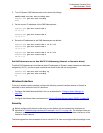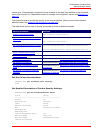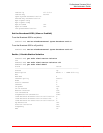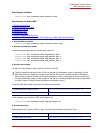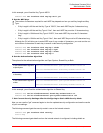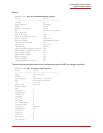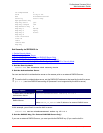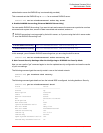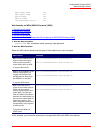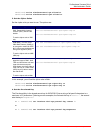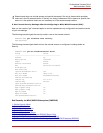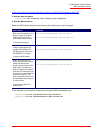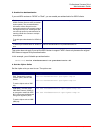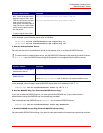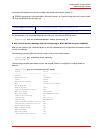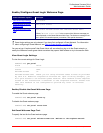
Professional Access Point
Administrator Guide
Class Structure, Commands, and Examples - 221
wpa-cipher-tkip off
wpa-cipher-ccmp off
wpa-allowed off
wpa2-allowed off
rsn-preauthentication off
Set Security to WPA/WPA2 Personal (PSK)
1. Set the Security Mode
2. Set the WPA Versions
3. Set the Cipher Suites
4. Set the Pre-shared Key
5. Get Current Security Settings After Re-Configuring to WPA/WPA2 Personal (PSK)
1. Set the Security Mode
USR5453-AP#
set interface wlan0 security wpa-personal
2. Set the WPA Versions
Select the WPA version based on what types of client stations you want to support.
In this example, you will set the access point to support Both WPA and WPA2 client stations:
WPA Option Example
WPA: If all client stations on the
network support the original
WPA but none support the
newer WPA2, then use WPA.
To support WPA clients:
set bss wlan0bssInternal wpa-allowed on
set bss wlan0bssInternal wpa2-allowed off
WPA2: If all client stations on the
network support WPA2, we
suggest using WPA2 which
provides the best security per
the IEEE 802.11i standard.
To support WPA2 clients:
set bss wlan0bssInternal wpa-allowed off
set bss wlan0bssInternal wpa2-allowed on
Both: If you have a mix of
clients, some of which support
WPA2 and others which
support only the original WPA,
select "Both". This lets both
WPA and WPA2 client stations
assoicate and authenticate, but
uses the more robust WPA2 for
clients who support it. This
WPA configuration allows more
interoperability, at the expense
of some security.
To support both WPA and
WPA2 clients:
set bss wlan0bssInternal wpa-allowed on
set bss wlan0bssInternal wpa2-allowed on



